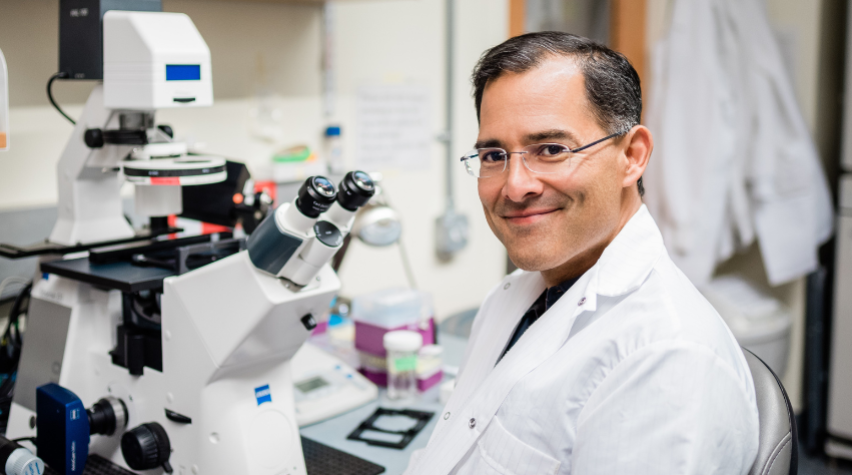
CRISPR is a groundbreaking technology that has enabled scientists to manipulate the genomes of various organisms with unprecedented precision, efficiency, and flexibility. The rapid adaptation and development of CRISPR technologies are only possible when scientists worldwide come together to share their recent discoveries and forge collaborations for new advancements.
The 2024 International Conference on CRISPR Technologies will be held October 14–16, 2024 at the Bahia Resort Hotel, San Diego, CA. Organized by AIChE’s Society for Biological Engineering (SBE), the conference will focus on the latest advances in genome editing and bring together key stakeholders with aligned interests across academia and industry, creating an environment that fosters discussions and new collaborations. Reserve your spot today.
We spoke with David Schaffer, Professor at the University of California, Berkeley, to discuss what he’ll be sharing at the conference, trends in the CRISPR field, and how CRISPR can advance some of the grand challenges facing engineering and society today.
What specifically will you be talking about at the conference?
As we have shown with adeno-associated viral (AAV) vectors over the past 25 years, directed evolution is a powerful approach to engineer highly efficient, targeted gene therapy delivery vehicles. Our AAV vectors are currently in 10 human clinical trials. Another class of therapeutic vectors are oncolytic viruses, which can stimulate immune responses against cold, solid tumors but currently suffer from low delivery efficiency. Unfortunately, due to their large genome sizes, conventional molecular biology approaches to create a genetic library are not possible. We have engineered a CRISPR-based technology for genetic diversification of specific loci in any DNA genome, based on a fusion between a nicking Cas9 and an error-prone DNA polymerase, and used this system to evolve vaccinia variants that show higher therapeutic efficacy in mouse models of cancer.
What are the main challenges in translating CRISPR research from the lab to practical, clinical applications?
CRISPR-based technologies in general are versatile and powerful ways to edit a DNA sequence. We have applied this approach both directly as a therapeutic, for the treatment of autosomal dominant disorders of the central nervous system, as well as a tool to enable other therapeutics, such as virotherapies. In general, however, for the first application, high-fidelity editing of long sequences and delivery of the CRISPR reagent are the major challenges in the field.
What are the primary concerns surrounding the ethical use of CRISPR technology, particularly in human germline editing?
The field is very comfortable with therapeutic somatic cell editing. The field is less comfortable with germline editing, given that it is in some ways experimentation without consent for a therapeutic whose safety record would likely not be fully established. There are also warranted concerns about the use of gene therapy or genome editing for performance enhancement, rather than as a therapy.
What are the next big steps in CRISPR research that you’re most excited about?
CRISPR has the same challenge as all gene and nucleic acid therapies: delivery. This is, and for some time will be, the biggest limitation to overcome in the field. Editing long DNA sequences will be important to obviate the need for personalized medicine in situations where, for example, loss-of-function mutations are spread across a long coding sequence. Furthermore, genetic diversification tools based on CRISPR are an exciting means for evolving and engineering better therapeutics that may themselves be non-CRISPR based.
Learn more about the 7th International Conference on CRISPR Technologies.
Group Registration Discount: A discount of 15% is available for groups of five or more regular participants of the same affiliation (e.g., universities, research institutes, or companies); it does not apply to students. Email syedh@aiche.org for promo code.
Conference Grants Available: Funding is available to help sponsor some registrations and travel costs. Students/post-docs and early-career professionals are encouraged to apply. This grant is made possible by the AIChE® Foundation and other generous supporting organizations. Apply today.
About SBE
Established in 2004, the Society for Biological Engineering is a technological community for engineers and applied scientists integrating biology with engineering. Members of SBE come from a broad spectrum of industries and disciplines and share in SBE’s mission of realizing the benefits of bioprocessing, biomedical, and biomolecular applications. Learn more about SBE.


